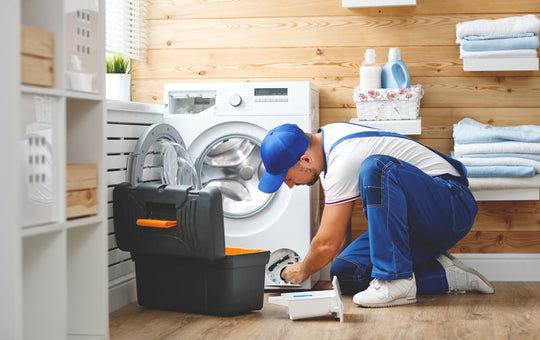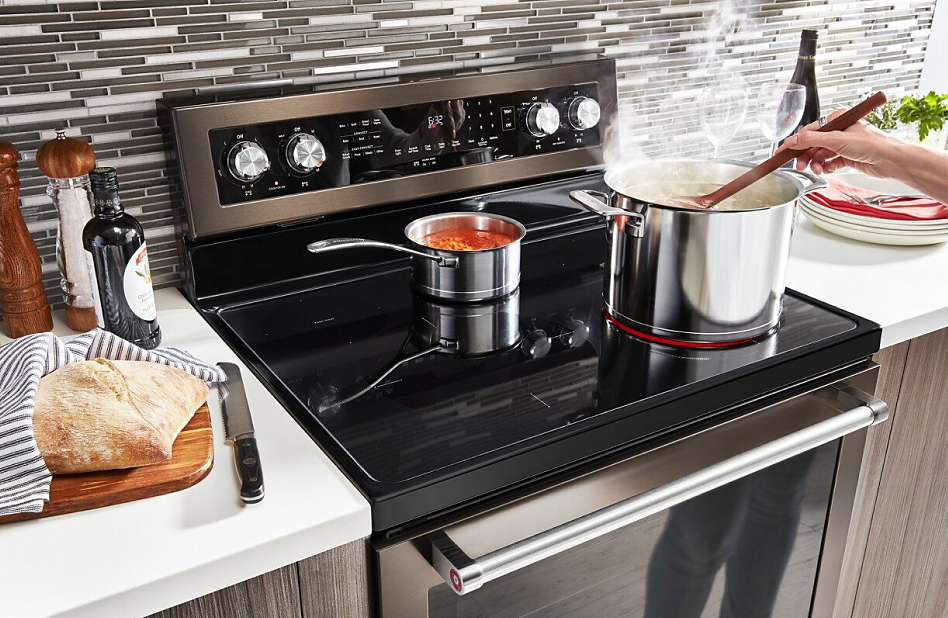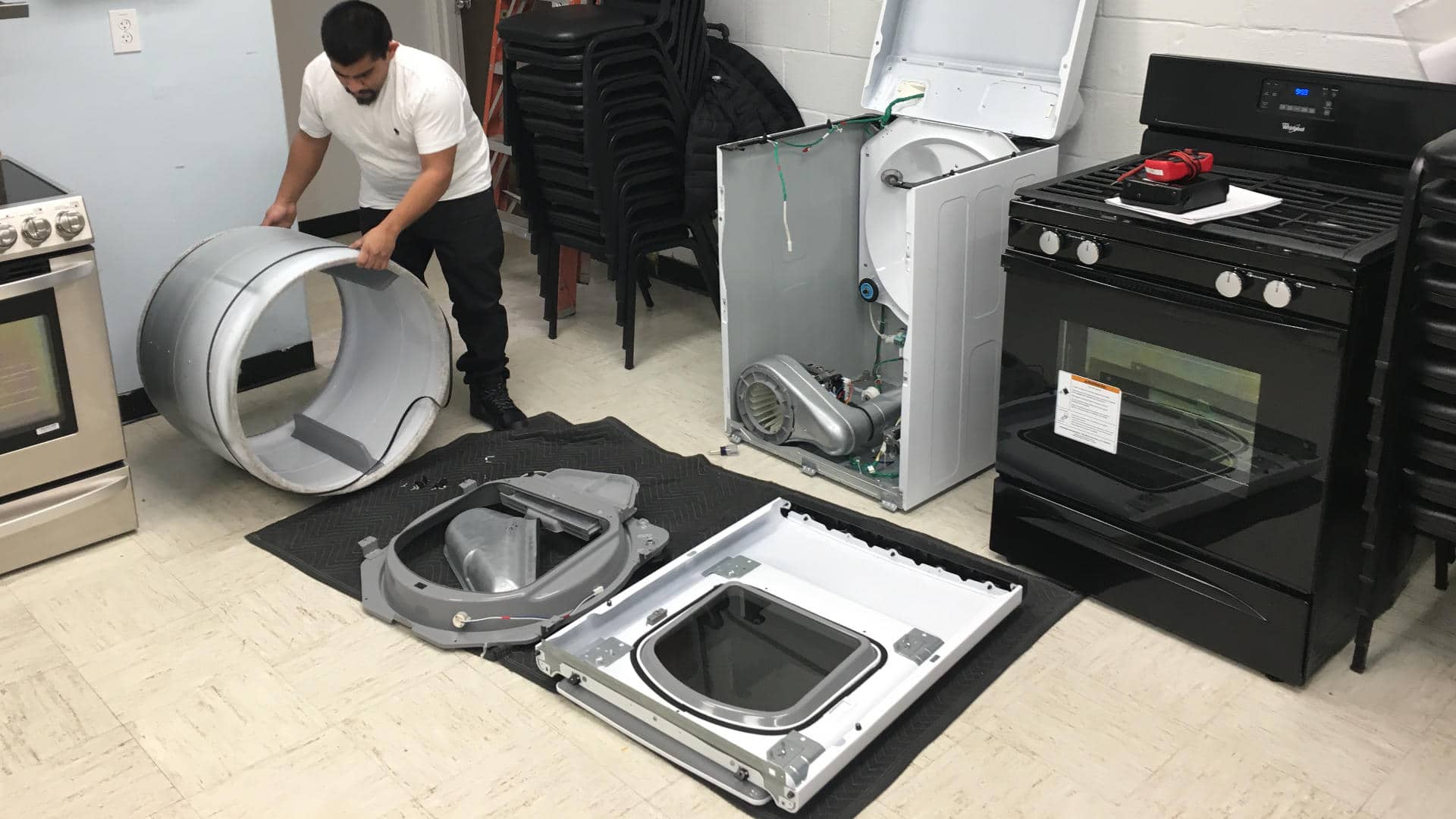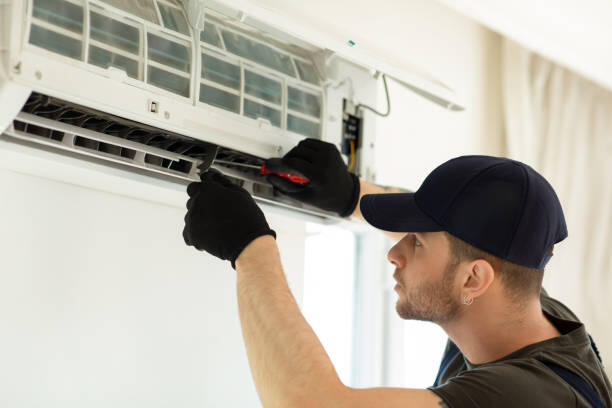Signs Your Appliance Needs Repair: What to Look For
Understanding when your home appliances need professional repair is crucial for maintaining their longevity and efficiency. Recognizing the signs of malfunction early can prevent costly breakdowns and ensure safe operation. This guide will help you identify key indicators that your appliances require professional attention, helping you make informed decisions about repairs.
Signs Your Appliance Needs Repair: What to Look For
Recognizing the early signs that your home appliance needs repair can save you from costly breakdowns and extend the life of your appliances. Being proactive about repairs ensures that your appliances continue to operate efficiently and effectively. Here are key indicators to watch for:
Unusual Noises: Any new or loud noises—such as banging, grinding, or squealing—are clear signs that something isn't right internally. These sounds can indicate loose or worn parts that need attention.
Poor Performance: If your appliance is not performing as expected, like a refrigerator that isn't cooling properly or a dryer that takes too long to dry clothes, it may need a repair.
Higher Energy Bills: An unexpected increase in your utility bills can be a sign that an appliance is failing and working harder than it should to maintain performance.
Frequent Resets Needed: If you find yourself constantly restarting or resetting an appliance to get it to work, this is a sign of underlying issues.
Leaks or Moisture: Any type of leaking, whether it's water from your dishwasher or coolant from your refrigerator, should be addressed immediately.
Recognizing these signs and seeking prompt repairs can prevent the inconvenience of full appliance breakdowns and ensure your home runs smoothly.
Identifying Early Warning Signs
Being vigilant about the early warning signs of appliance issues is essential to preventing major breakdowns and expensive repairs. Here are key indicators that suggest your appliance may soon need professional attention:
Decreased Efficiency. When appliances begin to lose efficiency, it often means they are working harder than necessary to perform their basic functions. For example, if your refrigerator runs constantly or your washing machine takes longer to complete cycles, this inefficiency could signal a problem that needs addressing.
Unusual Noises. Listen to your appliances; any new or loud noises can be a telltale sign of trouble. Clanking or knocking sounds in a washing machine might indicate an unbalanced load, but consistent noise during operation could suggest mechanical issues. Similarly, humming or buzzing from a refrigerator is not unusual, but sudden pops or rattles could indicate compressor or motor problems.
Strange Odors. Unfamiliar smells coming from appliances should never be ignored. A burning smell could indicate electrical issues, particularly in dryers or ovens, where such odors pose a fire risk. Musty smells, particularly from dishwashers or washing machines, could suggest mold or mildew buildup.
Physical Signs of Wear. Visible signs such as frayed cords, cracks, or corrosion can point to the degradation of your appliance’s physical condition. These physical symptoms often precede functional issues and should be repaired to avoid further damage or safety hazards.
Inconsistent Results. If your dishes come out of the dishwasher still dirty, or clothes from the dryer are damp, these are indications that your appliances are not functioning correctly. This inconsistency can be caused by a variety of issues, including clogged filters, worn out sensors, or failing heating elements.
Leaks and Spills. Water on the floor near your dishwasher or washing machine isn't just a nuisance; it can also be a symptom of a failing seal or hose. Immediate action is required to prevent water damage and mold growth.
Error Messages. Many modern appliances feature digital displays that provide error codes or messages when something goes wrong. Refer to your appliance’s manual to decode these messages and understand whether you need professional help.
By being proactive and recognizing these early warning signs, you can schedule repairs before the problems escalate. Regular checks and maintenance can often correct these issues early on, saving money and extending the lifespan of your appliances.
Importance of Timely Repairs
Addressing repairs timely in household appliances is not just about fixing a temporary inconvenience; it’s crucial for maintaining long-term functionality and efficiency. Delaying repairs can lead to more severe problems that are often much costlier to fix. Here are key reasons why timely repairs are essential:
Prevent Further Damage: Small issues can quickly escalate into major problems if not addressed promptly. For example, a minor leak in a dishwasher might seem negligible, but over time, it can cause significant water damage to floors and cabinets or lead to mold issues that are expensive to remediate.
Cost Savings: Repairing a minor issue immediately can be much more cost-effective than waiting for the appliance to break down completely. Early repairs can prevent the need for more extensive—and expensive—work down the line or the total replacement of the appliance.
Energy Efficiency: Appliances that are malfunctioning can consume more energy. For instance, a refrigerator that needs to work harder to maintain its temperature due to a failing component will use more electricity, leading to higher utility bills.
Safety: Timely repairs can also prevent safety hazards. For example, electrical faults in appliances can pose fire risks, and gas leaks in stoves can lead to dangerous explosions.
Extend Appliance Lifespan: Regularly servicing and repairing appliances promptly can significantly extend their usable life, ensuring you get the most out of your investment.
In summary, the timely repair of appliances is vital for preventing further damage, saving money, maintaining safety, enhancing energy efficiency, and extending the lifespan of the appliances. Recognizing early signs of trouble and acting quickly to address them can keep your household appliances running smoothly and efficiently.
Cost Savings and Efficiency
Timely appliance repair not only extends the lifespan of your devices but also enhances their efficiency and provides significant cost savings. Ignoring early warning signs can lead to greater energy consumption, higher utility bills, and eventually, the need for more expensive repairs or replacements. Here’s how addressing repair issues promptly can result in financial and operational efficiency:
Reduced Energy Consumption: A well-maintained appliance operates more efficiently. For instance, a refrigerator with a faulty seal might need to run longer to maintain the right temperature, using more energy. Fixing this issue quickly helps maintain energy efficiency, reducing monthly utility costs.
Minimize Major Repair Costs: Catching and fixing a problem early can prevent the development of more serious and costly issues. For example, replacing worn bearings in a washing machine might be a relatively inexpensive repair that prevents catastrophic motor failure, which would be far more costly to address.
Preserve Appliance Lifespan: Appliances tend to last longer when they are properly maintained. By ensuring all components are functioning correctly, you avoid the stress that can cause premature wear and tear, thereby avoiding the need for frequent replacements.
Environmental Impact: Efficient appliances also mean a smaller carbon footprint. By consuming less energy, you contribute to reduced environmental impact, aligning with broader sustainability goals.
Ultimately, investing in timely repairs not only saves money in the short term but also contributes to the prolonged efficacy and environmental efficiency of your appliances. This approach ensures that your household runs both effectively and economically.
When to Call a Professional
Understanding when to call a professional for appliance repair is crucial to ensuring the longevity and efficiency of your home appliances. Tackling appliance repairs can be a daunting task, especially if you're unsure about the complexities involved. Here are some scenarios and signs that indicate it's time to call in a professional, rather than attempting a DIY repair.
When Safety is a Concern: Safety should always be your top priority. If any repair involves gas lines, electrical systems, or heavy lifting, it’s safer to call a professional. For instance, any issue with a gas stove, including smells of gas or problems with the burner, warrants immediate professional intervention to avoid risks of gas leaks or fire.
When You're Dealing with Complex Electrical Issues: If your appliance has stopped working and you suspect the problem is related to internal wiring, a motor, or the electronic control system, it's time to call a professional. These components require specific tools and knowledge for safe and effective repairs.
When the Appliance is Under Warranty: If your appliance is still under warranty, attempting a DIY repair could void the warranty. Always check the warranty terms and consider professional service to ensure the repair is covered and doesn’t lead to additional costs.
When the Problem Recurs Frequently: If you've attempted to fix an appliance and the same problem keeps recurring, this is a sign that a deeper, possibly more complex issue is at play. Professional appliance technicians can diagnose the root cause of the problem, ensuring a more permanent solution.
When You Notice Water Leaks: Water leaks in appliances like dishwashers, washing machines, or refrigerators can lead to significant damage in your home. If you notice persistent moisture or puddling, a professional can accurately trace the source of the leak and fix it before it causes more extensive damage.
When There’s a Significant Drop in Performance: If your appliance is not performing as efficiently as it used to, such as a refrigerator not cooling properly or a dryer taking too long to dry clothes, these are signs that something internally might be failing. Professionals can assess whether parts need cleaning, repair, or replacement.
When You Hear Unusual Noises: Unusual noises are often indicative of worn or damaged parts. For example, grinding sounds in a washer could indicate a problem with the drum or bearings. Professionals can identify the exact cause of the noise and replace the faulty components safely.
When Error Codes Appear: Modern appliances often use error codes to signal specific issues. If your appliance displays an error code, consult the manual to understand its meaning. If the solution isn’t straightforward or involves complex components, call a professional repair service.
When Appliance Use Leads to Increased Energy Bills: If you notice a spike in your energy bills linked to an appliance’s operation, this could indicate it’s running inefficiently due to a malfunction. A professional can conduct a thorough check to improve the appliance’s efficiency and reduce energy costs.
When You Lack the Right Tools and Knowledge: If you find yourself unsure about how to proceed with a repair or you lack the necessary tools, it’s better to hire a professional. They will have the appropriate equipment and expertise to carry out the repair safely and effectively.
When Maintenance Is Neglected: If regular maintenance has been neglected and the appliance starts showing multiple symptoms of wear or failure, a professional assessment can help determine whether repairs or a replacement are more cost-effective.
Calling a professional for appliance repair is often the safest and most cost-effective choice. It ensures that repairs are done correctly, protects your appliance's longevity, and keeps your home safe from potential risks associated with incorrect repairs. Recognizing the signs that indicate the need for professional help can save you time, money, and ensure that your appliances continue to function efficiently for years to come.





